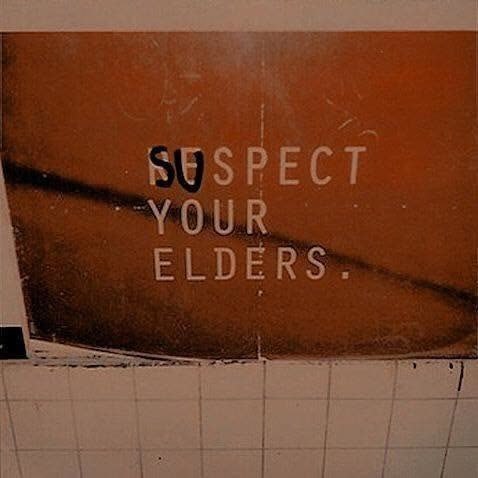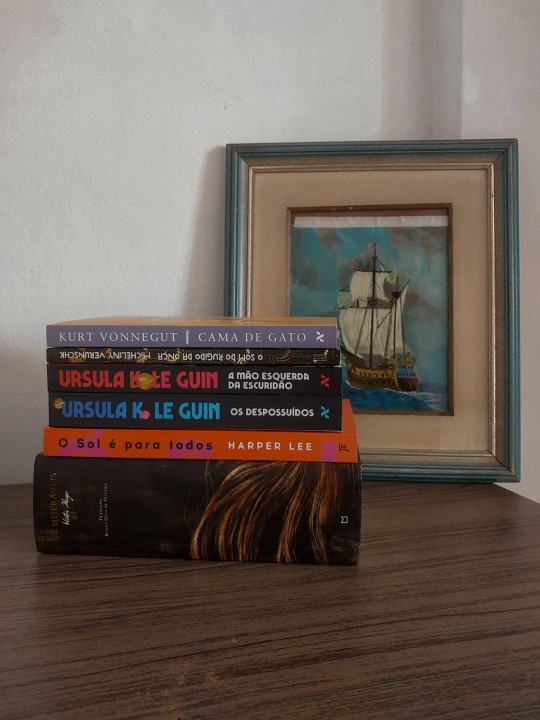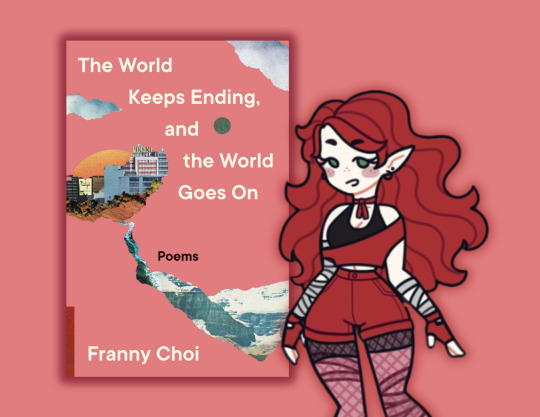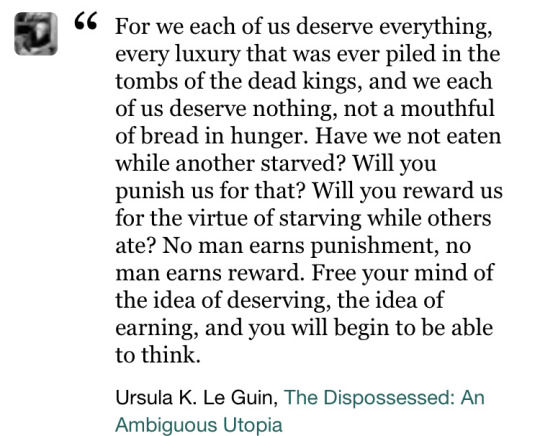#The Dispossessed: an ambiguous utopia
Explore tagged Tumblr posts
Text
I love how in The Dispossessed the Anarresti feel extremely alien and "enlightened" in the way they organize their society and live on an individual scale, so to drive home the idea that they really ARE human and exhibit a lot of the same basic flaws that the Urrasti and other humans do, Ursula was like "Let it be clear that Shevek is a man and he has the capacity to RAPE" 😭
#when I got to that part I was like “oh okay so he isn't a jesus-type” 😭#le guin#the dispossessed#an ambiguous utopia
0 notes
Text

When he found that the administrators were upset, he laughed.
"Do they expect students not to be anarchists?" he said. "What else can the young be? When you are on the bottom, you must organize from the bottom up."
— Ursula K Le Guin, The Dispossessed: An Ambiguous Utopia
1K notes
·
View notes
Text

“You cannot buy the revolution. You cannot make the revolution. You can only be the revolution. It is in your spirit, or it is nowhere.”
― Ursula K. Le Guin, The Dispossessed: An Ambiguous Utopia
74 notes
·
View notes
Text
"You cannot buy the revolution. You cannot make the revolution. You can only be the revolution. It is in your spirit, or it is nowhere."
Ursula K. Le Guin "The Dispossessed: An Ambiguous Utopia"
#aesthetic#dark academia#books and reading#books#academia#book quotes#dark academia quotes#bookblr#relatable#booklover#book quote#bookworm#ursula k. le guin#the dispossessed#revolution#revolt#quote of the day#quote
22 notes
·
View notes
Text

“You cannot buy the revolution. You cannot make the revolution. You can only be the revolution. It is in your spirit, or it is nowhere.”
-Ursula K. Le Guin, The Dispossessed: An Ambiguous Utopia
#toyphotography#legophotography#legostagram#brickcentral#legominifigures#lensbaby#lensbabyathome#lensbabydoubleglass2#lensbabysweet50#star wars ewoks#ewoks#ursula k le guin
29 notes
·
View notes
Text
“ Il mio mondo, la mia Terra, è una rovina. Un pianeta rovinato dalla specie umana. Ci siamo moltiplicati e ci siamo ingozzati e abbiamo combattuto finché non è rimasto più nulla, e poi siamo morti. Non abbiamo controllato né gli appetiti né la violenza; non ci siamo adattati. Abbiamo distrutto noi stessi. Ma prima abbiamo distrutto il nostro mondo. Non rimangono più foreste sulla mia Terra. L’aria è grigia, il cielo è grigio, fa sempre caldo. È abitabile, è ancora abitabile, ma non come questo mondo. Questo è un mondo vivo, un’armonia. Il mio è una dissonanza. Voi Odoniani avete scelto un deserto; noi Terrestri abbiamo fatto un deserto…
Laggiù noi sopravviviamo, come voi. La gente è resistente! C’è quasi mezzo miliardo di noi. Una volta ce n’erano nove miliardi. Puoi vedere ancora dappertutto le vecchie città. Le ossa e i mattoni vanno in polvere, ma i piccoli pezzi di plastica no… anch’essi non s’adattano. Noi abbiamo fallito come specie, come specie sociale. Noi siamo qui, ora, a trattare da pari a pari con le altre società umane sugli altri mondi, soltanto grazie alla carità degli Hainiti. Essi vennero da noi; essi ci portarono aiuto. Costruirono navi e ce le donarono, in modo che potessimo lasciare il nostro mondo rovinato. Ci trattano gentilmente, caritatevolmente, come un uomo forte può trattare uno malato. Sono un popolo molto strano, gli Hainiti; più antichi di qualsiasi altro; infinitamente generosi. Sono degli altruisti. Sono spinti da un sentimento di colpa che noi non riusciamo neppure a capire, nonostante tutti i nostri crimini. Essi sono spinti, in tutto ciò che fanno, io credo, dal passato, dal loro interminabile passato. Ebbene, abbiamo salvato il salvabile, e organizzato una sorta di vita nelle rovine, su Terra, nell’unico modo in cui la si poteva organizzare: centralizzazione totale. Totale controllo sull’uso di ogni acro di terreno, ogni pezzo di metallo, ogni grammo di carburante. Totale razionamento, controllo delle nascite, eutanasia, coscrizione universale nella forza lavoro. L’assoluta irreggimentazione di ciascuna vita per raggiungere la meta della sopravvivenza razziale. Eravamo arrivati a questo, quando giunsero gli Hainiti. Essi ci portarono… un po’ più di speranza. Non molta. Noi l’abbiamo oltrepassata… Noi possiamo soltanto guardare a questo splendido mondo, a questa vitale società, a questo Urras, questo paradiso, dall’esterno. Siamo capaci solo di ammirarlo, e forse di invidiarlo un poco. Non molto. “
Ursula K. Le Guin, I reietti dell'altro pianeta, traduzione di Riccardo Valla, Collana Narrativa di anticipazione n.6, Editrice Nord, 1976¹, pp. 299-300.
[1ª Edizione originale: The Dispossessed: An Ambiguous Utopia, Harper & Row, New York City, 1974]
#letture#leggere#citazioni letterarie#fantascienza#distopie#Ursula K. Le Guin#ambiente#ambientalismo#specie umana#fantascienza utopica#romanzi#libri#pianeta Terra#ecologia#questioni ambientali#ecologismo#inquinamento#resilienza#letteratura americana del '900#armonia#adattamento#natura#letteratura fantascientifica#passato#futuro#speranza#vita#sistema capitalistico#sopravvivenza#capitalismo
8 notes
·
View notes
Text


#polls#book: the dispossessed#author: ursula k. le guin#genre: sci fi#genre: dystopian#genre: fantasy#genre: classics#year: 1970s
32 notes
·
View notes
Text


New books that arrived here in November.
- Les Misérables; - To kill a Mockingbird; - The Left Hand of Darkness; - The Dispossessed: An Ambiguous Utopia - O som do rugido da onça; - Cat's Cradle
Do you know some?
#mine#studyblr#study blog#study#book#studyblr brasileiro#inspiration#aesthetic#brazilian studyblr#books#studyblr brazil
22 notes
·
View notes
Note
📖
“A scientist can pretend that his work isn't himself, it's merely the impersonal truth. An artist can't hide behind the truth. He can't hide anywhere.”
-Ursula K. LeGuin, The Dispossessed: An Ambiguous Utopia
3 notes
·
View notes
Text
I love Vea from ch7 of The Dispossessed. I always fall in love with her along with Shevek, and then over the course of the chapter, you realize she’s like… a bad person? Or there’s something very perverse about her. It’s disturbing. Not only the way she lives her life, but the conclusions she has come to about it. I both respect her and feel disgust for her. It’s probably bc of characters like Vea that Le Guin’s early work got criticized on feminist grounds, but I only really agree w that for her earliest writing, and it was never that bad. When she started to examine gender, she was transgressive. Her later career is more “feministly correct” but it’s often not as interesting on those grounds. I’m making broad generalizations but this is what I feel to some degree.
Vea is sorta an anti-Shevek. He’s a revolutionary among revolutionaries, and she’s the queen of resignation. And not in a Himemiya Anthy way—more like, she’s on top of the heap and damn pleased with that state of affairs. She’s decadence, I suppose. Even more, she becomes an object to Shevek, his Woman in the Table.
Vea is ultimately written out of the story. She embodies Shevek’s disgust with Urras. After he forces himself on her and cums all over her dress, he wakes up, feels ashamed of himself, and resolves to join the Urrasti anarchists, sparing only a condescending thought for Vea. It’s basically inevitable that people have called the book out. I personally don’t have an issue w it, but that’s only because I have the wider context of Le Guin’s career in mind. And also because, the chapter is damn good. You know. It’s not like she didn’t spend 20,000+ words building that shit up. And it changes the course of Shevek’s life on Urras.
It’s due to the subtlety of Le Guin’s writing that Vea’s character doesn’t feel like a violently misogynistic character. She’s so alive and real, like every character in the book is. And she becomes the focal point for Shevek’s breakdown into darker emotions, but it’s not as if she actually is the embodiment of lust and temptation and ill-gotten gains. And when it comes to how she’s written out of the book, well, reading it from her perspective makes a difference. She was trying to fuck Shevek the entire time she knew him lol, and she only cared that he’d gotten her dress dirty and forced her to change it. That could have damaged her reputation but—it’s Vea. You know. She comes across in the book as incredibly socially powerful, and she’s gonna move on from his ass in two seconds flat.
The seventh chapter is one of the best in the book tbh, because Vea represents one of the greatest challenges to Shevek. She asks him questions, and I don’t know if he had great answers. Perhaps Le Guin wrote Vea out because she wanted Shevek and his POV to reign supreme (it basically does by the end). But in the ambiguous utopia, I think Vea is the most ambiguous of all. On the one hand, if I didn’t have other Le Guin books to answer it, the way Vea is written would bother me more. But I also get a lot out of chapter 7, by itself. At the end of the day, I also recoil from Vea. I recoil from her amorality. Yet I also love her, on a human level. That’s why she sticks with me, and why the writing isn’t unbearably one-sided. Shevek would certainly be more boring if he didn’t have limitations or failings.
8 notes
·
View notes
Text
Redd Reviews: THE WORLD KEEPS ENDING, AND THE WORLD GOES ON by Franny Choi

Genre: Poetry
Major Tropes: Dystopia, utopia
Representation: Written by a queer Korean-American and discusses Korean-American issues, though the book is not explicitly queer (to my knowledge.) Little to no disability rep.
My Thoughts
Franny Choi’s The World Keeps Ending, and the World Goes On is a book about many things; apocalypse, dystopia, history, future, COVID, race, trauma, life… but it is also very much a book about endings, beginnings, and continuances. Choi’s lyrical play and word choice often leans into this theme, with poems like “We Used Our Words We Used What Words We Had” and “I Have Bad News and Bad News, Which Do You Want First” blending the beginnings and endings of lines and stanzas. The world has ended, after all, but it has also continued right along.
One time the world ended was in 2020. Choi’s poems are all tinted by a post-COVID perspective for me, and possibly for the author as well. It’s impossible for me to know if lines like “...stitched by girls who look like me but for their N95s…” refers to masks worn for COVID-related or other reasons (poor workplace conditions?), but my perspective on these lines post-COVID is certainly tinged. Given that the author does outright reference COVID in other poems, I find it hard to believe that these lines weren’t at least left ambiguous on purpose.
My second favorite poem in the collection was “Field Trip to the Museum of Human History.” Choi says this poem was inspired by Ursula K. Le Guin, and I clocked this immediately. What’s fascinating for me is that I checked The Winds’ Twelve Quarters, the only non-children’s book by Le Guin I’ve read (though I have others on my to-be-read shelf!) and I don’t believe I’ve read The Dispossessed, the story Choi says the poem was inspired by, nor any significant passages from it. Le Guin’s influence over the poem is just that strong. And now I have another book to add to my TBR shelf!
Related, I really enjoyed the scifi aspect of the book overall. I’m a big fan of exploratory, speculative fiction and have sought in the past a way to write a scifi or fantasy poem without it being a hundred pages. Obviously, Choi achieves this goal in “Science Fiction Poem” and “Field Trip to the Museum of Human History,” but even more than that she achieves this goal in “The World Keeps Ending, and the World Goes On,” if in a more watered-down form.
My favorite poem in the collection was “We Used Our Words We Used What Words We Had.” I’ve always been slightly fascinated by nonsense poetry and literature, but most nonsense doesn’t make my spine tingle like this poem does. Instead of being silly and charming, this poem cuts deep at something… but I don’t know what. Sense is abandoned for lyricism; phrases are structured for rhyme, consonance and assonance, rather than for meaning. It’s a beautiful poem, and I don’t get it. But I think that’s the point. This poem certainly inspires me to play more with my words, regardless of hard meaning and in favor of effect. The piece is a playful celebration of sound, and I wonder if this has anything to do with her background in spoken-word poetry.
This collection of poems is somewhat haunting for me. I’m frequently a doom-thinker, almost obsessed with intrusive visions of my own death and the death of the ones I love. In my dreams I fair better, as brilliant revolutionary leader or crafty apocalypse survivor, but still the doom is there—why is the revolution necessary? What caused the apocalypse? This is not to say I believe this collection is possessed by an untoward sense of doom—I think any sense of doom the collection has is warranted and realistic. But it’s inconvenient. It forced me to face things I try not to face, for fear my sense of doom would grow greater. The moral of the story here is that there is no remedy, or at least no easy or permanent one. Even if we prevent one apocalypse, another will follow, almost certainly. That said, “Protest Poem” does give us some hope for changing the future… A sense of ‘something will always be wrong but at least it can be less wrong or for less time.’ Additionally, The World Keeps Ending, and the World Goes On is greatly interested in knowing others.
In this way, Choi’s book reads like a manifesto of sorts, or perhaps half a manifesto. Most manifestos expose the wrong in the world and give a list or at least a sense of the policies, ideals, aims, etc. that would correct that wrong. Choi does a lot of the former, and much less of the latter. I struggle to see a call to arms in this book, despite the aforementioned “Protest Poem.” She establishes empire as the root of evil in some poems, but fails to present a solution to empire. I think this is intentional, and partially because I don’t think the speaker believes in any true, hard endings. Of anything, not just empire. Is this depressing? Possibly. But love doesn’t end either, nor compassion, nor progress. In this way, I believe The World Keeps Ending, and the World Goes On does carry some sort of hope, should you choose to read it that way.
The World Keeps Ending, and the World Goes On is filled with poignant lines and exploratory poems with few misses, but a few pieces lost my attention at times.
Rating: 🌎🌎🌎🌎/5
Check out waffalet's elf girl maker here.
#poetry#franny choi#bookblr#poetry book#poetry book review#book review#butredd#korean american poetry#hope this one isn't too weird; it's modified from a response paper lol#dystopia#utopia
7 notes
·
View notes
Text
You cannot buy the revolution. You cannot make the revolution. You can only be the revolution. It is in your spirit, or it is nowhere.
― Ursula K. LeGuin, The Dispossessed: An Ambiguous Utopia
2 notes
·
View notes
Text

“You cannot buy the revolution. You cannot make the revolution. You can only be the revolution. It is in your spirit, or it is nowhere.”
― Ursula K. Le Guin, The Dispossessed: An Ambiguous Utopia
75 notes
·
View notes
Text
miscellaneous thoughts on the sparrow
- some parts of the book were genuinely hilarious. “he loved god but found rough sex… gratifying.” iconic sentence
- also the priests’ realization. how every single one of them assumed emilio fucked up. emilio betrayed god. their reactions when they realize that god was the actual betrayer are kinda hilarious, and so is emilio’s reaction to their reaction. like they fucked up. they fucked up sooooo bad. honestly he could have been a lot more ruthless towards them. they got off so easy.
- “are you not concerned to be in the bedroom of someone so… notorious?” also iconic. assuming the position of christ for an ironic “seduction.” no one is doing it like him.
- the only book i’ve read that contains more pain than the sparrow is fernanda melchor’s hurricane season which if you’ve ever read that book is saying a lot.
- i mean there really is something darkly hilarious about how much pain he was subjected to. i think his accidental murder of askama was a bit contrived. but the shock value is certainly effective.
- the passage when he meets hlavin is absolutely horrific. you have to wonder how much of his initial joy at the situation is his mind frantically trying to deny what’s about to happen to him. one of the worst things i ever read. in a good way.
- i also found anne edwards deeply irritating and was not at all surprised to discover she was modeled on russell herself. her attempts at intellectual humour r so grating. in general the found family was just unconvincing to me for some reason. none of them seemed like real people except emilio, none of their attachments to each other were believable; i wasn’t that sad when they died
- i cannot help but compare this to the left hand of darkness and monster! ofc! i mean it’s kinda the antithesis of those two stories bc in those tales the protsgonists’ efforts to carry out their moral principles is ultimately rewarded, though not without sacrifice. and in the sparrow it’s the complete opposite. u could argue the history of catholicism is ultimately what screws over sandoz— bc he was acting on unstable foundations in the first place.
- he faces the same dilemma as tenma and both are messianic figures but the outcome is different bc tenma isn’t subscribing to a larger set of dubiously moral principles but his own convictions- and genly ai succeeds bc he’s able to do what sandoz/russell couldn’t which is learn to approach the alien culture on their own terms. and he learns how to do that through understanding daoist principles— so different from christian ones
like yes the alien world building is pretty shallow but nothing can compare to le guin so yah. i am being unfair. but when such an essential part of the plot hinges on that alien culture u have to go deeper than “wow! cat people utopia!” like ik the big revelations about the jana’ata and the runa were meant to be shocking and meant to make the reader question their preconceived notions of society and morality but so much of sci fi has explored this notion better. again, le guin. the dispossessed and four ways to forgiveness did it soooo much better
and then in the end they’re like “let’s send yet another mission to run interference because apparently we didn’t wreak enough havoc the first time.” like omg. you idiots.
- do i ascribe emilio’s failure to russell’s colonialist writing or his own ignorance? so hard to say— i mean the narrative is pretty ambiguous on whether it was the missionaries’ fault or god’s fault. but it doesn’t touch on their most essential mistake which was assuming that they knew better than the natives
it’s always the messianic figures that get me, istg!!
6 notes
·
View notes
Text
"For we each of us deserve everything, every luxury that was ever piled in the tombs of the dead kings, and we each of us deserve nothing, not a mouthful of bread in hunger. Have we not eaten while another starved? Will you punish us for that? Will you reward us for the virtue of starving while others ate? No man earns punishment, no man earns reward. Free your mind of the idea of deserving, the idea of earning,and you will begin to be able to think."
--Ursula K. Le Guin, The Dispossessed: An Ambiguous Utopia

It’s an Ursula k le Guin free your mind from the idea of deserving kind of day
34K notes
·
View notes
Text
Our society is practical. Maybe too practical, too much concerned with survival only. What is idealistic about social cooperation, mutual aid, when it is the only means of staying alive?
Ursula K. Le Guin, in The Dispossessed: An Ambiguous Utopia
1 note
·
View note